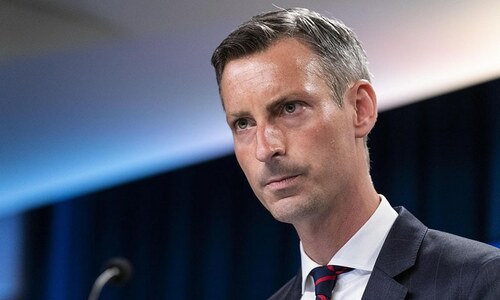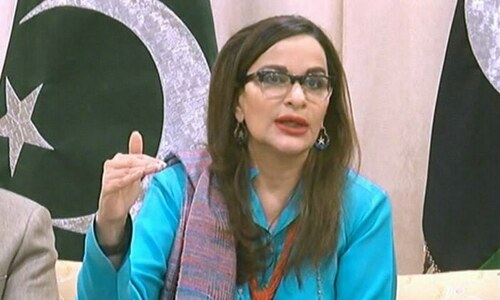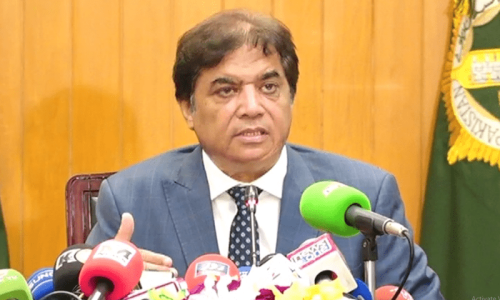ISLAMABAD: Voicing concern about India’s missile incident, experts on Tuesday said New Delhi’s irresponsible attitude could lead to nuclear escalation in the already fraught security environment in South Asia.
Speaking at a seminar at the Centre for International Strategic Studies (CISS) Islamabad, nuclear expert Dr Naeem Salik contended that the March 9 incident of an Indian missile landing in Mian Channu had highlighted the dangers of nuclear escalation.
He said India’s explanation that the missile was accidentally launched during routine maintenance was a “fabricated story” and urged the international community to look deeper into the incident.
Dr Salik said the incident had exposed the credibility of the BrahMos missile.
CISS Executive Director Ali Sarwar Naqvi noted that stability and peace in South Asia remained a core strategic interest of Pakistan.
Balochistan Think Tank Network (BTTN) Executive Director Dr Zafar Khan said it was unprecedented that a nuclear state had fired a nuclear-capable missile on to the territory of another nuclear weapon state, claiming that it was an accident. Only Pakistan’s pragmatism has saved the region from a disaster, he added.
Dr Asma Shakir Khawaja, an academic, argued that the incident reflected a profound level of incompetence in handling of sensitive weapons among Indian forces.
This incapacity to handle advanced weapon systems, along with multiple cases of nuclear theft in India, constitute irresponsible behaviour that endangered regional as well as global security, Dr Khawaja said.
She questioned India’s commitment towards existing confidence-building measures with Pakistan, as it chose not to timely share details of the accidental launch.
“This could have led to escalation of the crisis to a nuclear level,” she added.
Other speakers emphasised that the missile incident spoke of India’s irresponsible nuclear behaviour.
While some countries continue to praise India’s nuclear programme and its command and control system, the incident has busted this myth, they added.
Warning about indications that nuclear thinking in India was in the hands of extremist elements, speakers cautioned against ignoring the possibility of India’s nuclear weapons falling into the hands of rogue elements. This fear, they asserted, had been compounded in the aftermath of a ‘Rashtriya Swayamsevak Sangh (RSS) driven aggressive and strategic mindset’ dominating the security establishment.
In this hostile strategic environment, they said, the onus of responsibility to maintain strategic stability laid on Pakistan and it remained committed towards achieving this objective.
Published in Dawn, March 23rd, 2022
















































